Of the elite tourist destinations in Europe, Rome is one you don't want to miss. With its architectural brilliance and cultural heritage, however, it is not one for "budget travel" (or so you'd think!) Evidently, there are many fascinating ways to explore the City of Seven Hills on a shoestring budget. Let's find out the top 15 free things to do in Rome together
PS: We've saved the best for last!
Peek through Rome's hidden Keyhole
This attraction is a true hidden gem, offering an experience that's as small as it is special! Nestled in the Church of Santa Maria del Priorato, the Aventine Keyhole might be tiny, but its view is anything but ordinary. When you peer through this famous keyhole on Aventine Hill, you'll catch a rare glimpse of the Vatican's dome framed perfectly. Just enter the church, find the green door, and enjoy this unique, no-cost view of one of Rome's most charming secrets. Whether the keyhole was intentionally positioned or not remains a mystery, but its charm is undeniable!
- To avoid the crowds and enjoy a peaceful visit, consider going early in the morning or later in the afternoon. The garden offers beautiful views of Rome, and these quieter times can provide a more serene experience.
- Don't forget your camera to capture the breathtaking scenery and the iconic St. Peter’s Dome in the distance.
- The garden is part of a larger area that includes uphill paths and cobblestone streets. Comfortable walking shoes will make your visit more enjoyable as you explore the surrounding Aventine Hill neighborhood.
- While there aren't many food options directly in the garden, having a bottle of water and a light snack can be useful, especially if you plan to spend some time relaxing and enjoying the view.
St. Peter's Basilica
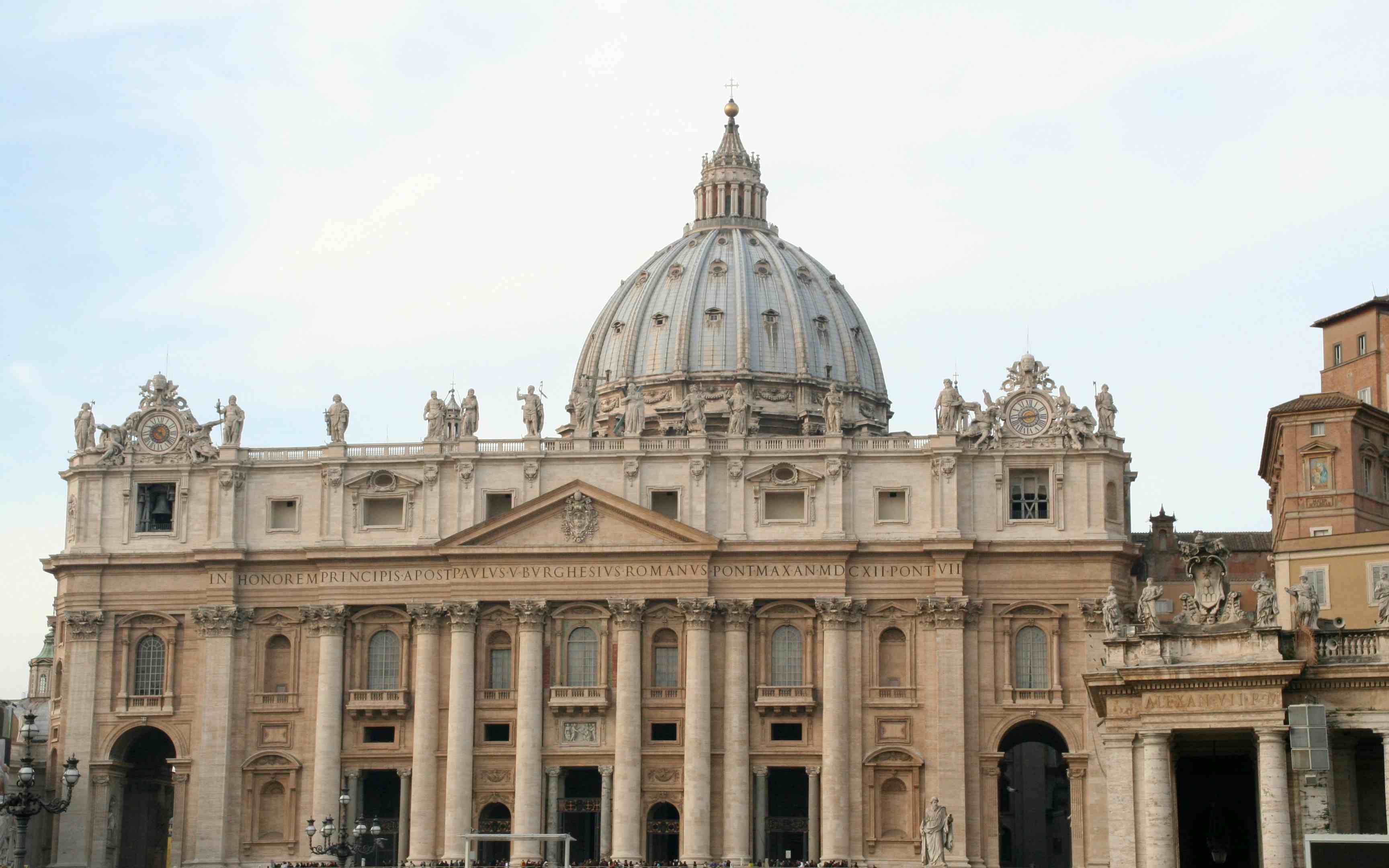
St. Peter’s Basilica is one of the many places in Rome that is equally important to the religious and cultural history of the world. Forming an integral part of the Roman skyline, St. Peter’s Basilica is one of the largest churches in the world. You can gain entry at St. Peter’s Basilica for free. If you get to the place early, you will be able to squeeze in a lot of sightseeing in the area in a short span of time.
- The waiting period can be between 45 minutes to 3 hours! We highly recommend you buy tickets online to decrease your wait time.
- No shorts, mini skirts, or bare shoulders allowed in the basilica.
- The closest metro station is Ottaviano- it is a quick 10-min walk to the attraction.
- Know which St.Peter's Basilica entrance you must enter through depending on your ticket type beforehand to save time.
Villa Borghese Gardens

A large chunk of Rome’s greenery resides in the Villa Borghese Gardens. Situated a stone throw’s distance from Piazza del Popolo and the Spanish Steps, Villa Borghese Gardens is free to visit all around the year. You can explore the 80-hectare area of the garden that was planned and developed in the early 17th century and then redesigned in 1903.
- Take a map of the Borghese Gardens with you on the day of your visit.
- Plan ahead of time about where you'd like to enter and exit.
Via Appia Antica

Via Appia Antica or the Old Roman Appian Way bears witness to a lot of Roman history. It was an important road used to transport troops to the southern part of the country. A part of this road is now included in nature and archaeological park. On Sundays, the road is closed for traffic, and this is the perfect time to take a walk on Via Appia Antica and let yourself become one with the history.
KNOW MORE- It is not recommended to walk the first two miles of the Appian Way (beyond the porta San Sebastiano).
- If you want some literature about the road, read The Appian Way: From Its Foundation to the Middle Ages.
Trevi Fountain
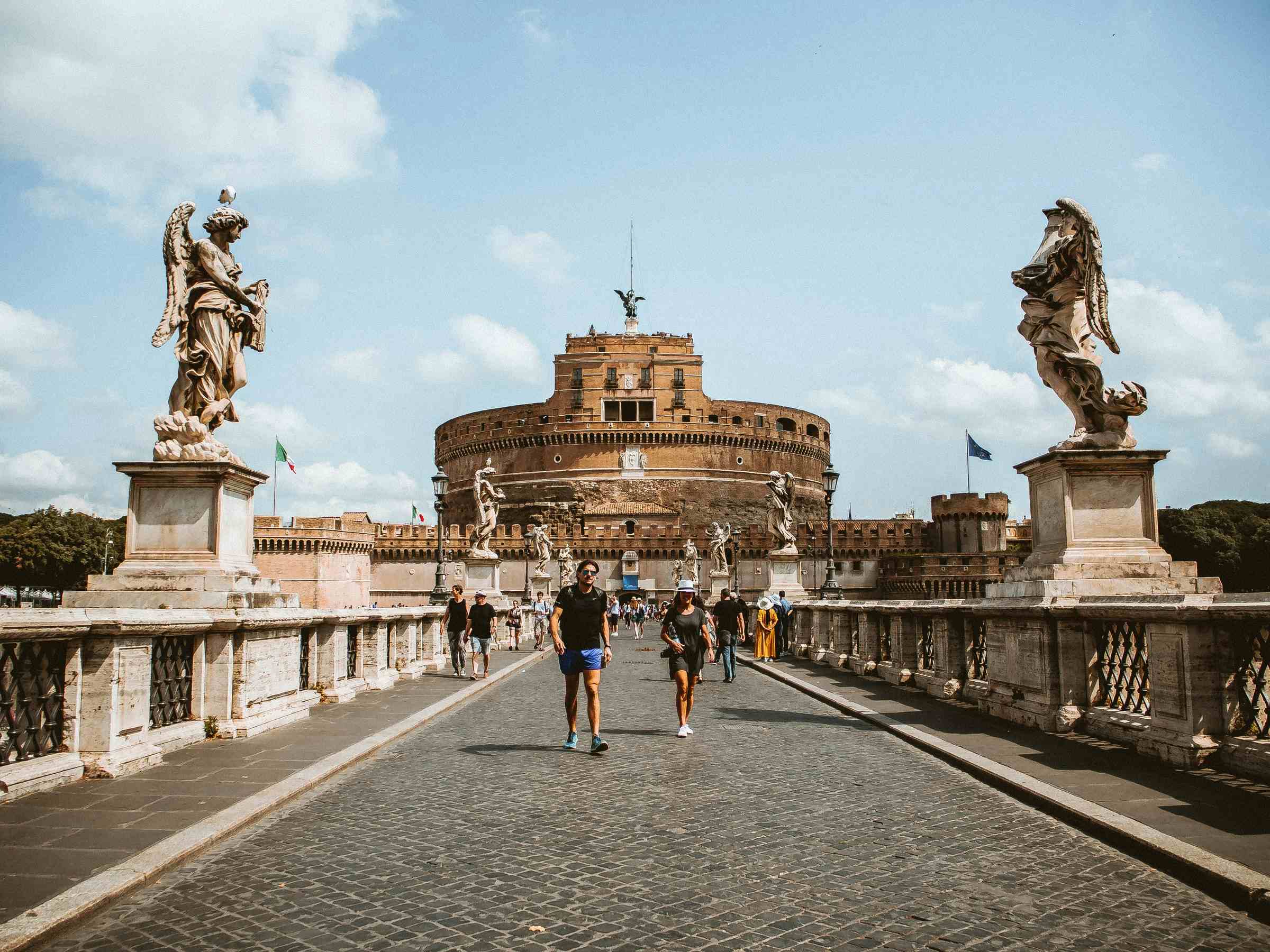
Trevi Fountain is a Rome essential, given its prime position in the city and its sheer grandeur. After prolonged restoration and refurbishment, the fountain is even more impressive than it was before. The fountain has stood in Rome since 19 BCE. If you are in Rome, you will be able to spend some time around this spectacular landmark for free.
- Be alert of your surroundings: people will be brushing up against each other, so keep your belongings and valuables safe.
Spanish Steps
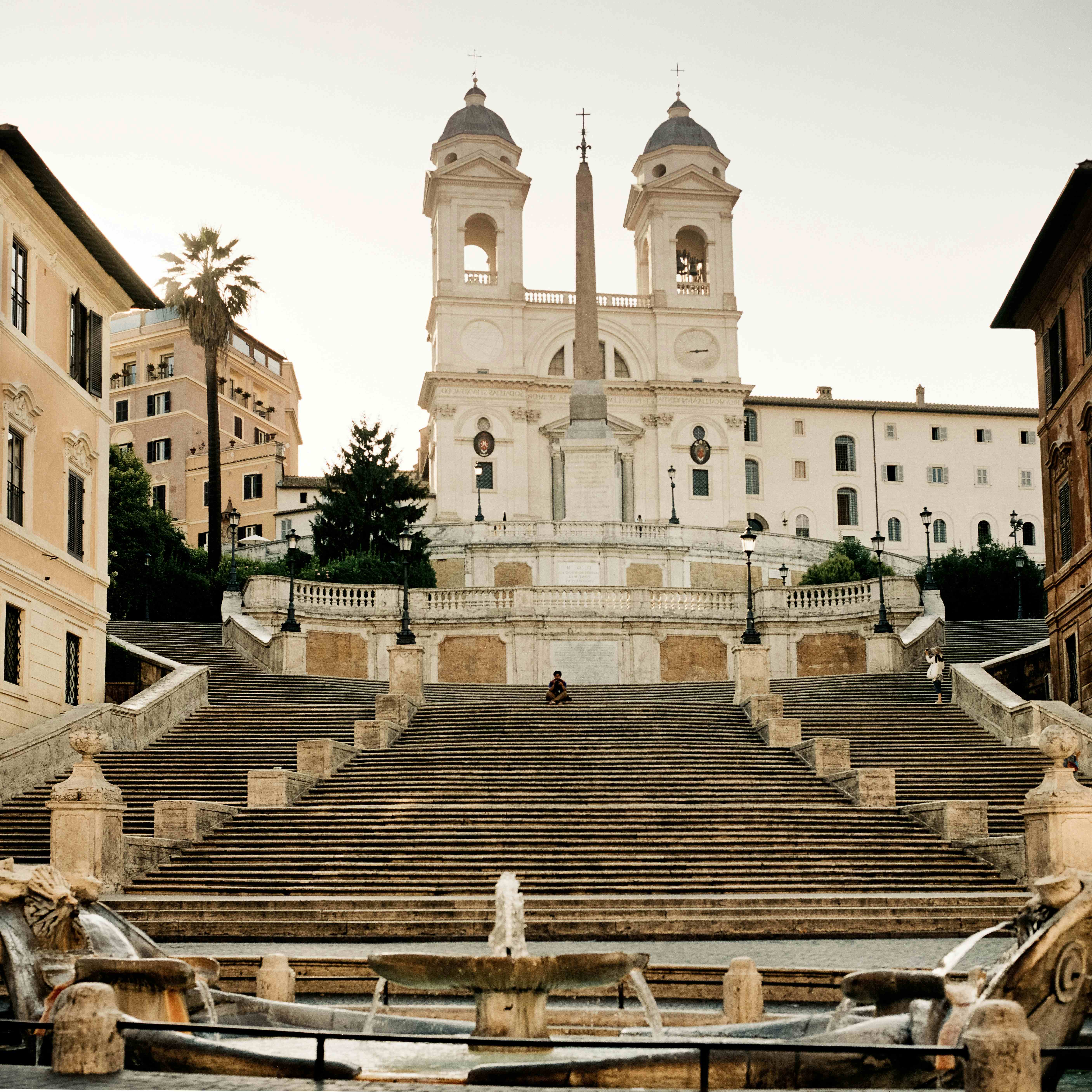
The Roman Baroque style of architecture finds some of its best specimens in Rome. With its asymmetrical butterfly-like design, the Spanish Steps are another important free attraction in the Eternal City. The 138 steps that form this famous attraction are a great place to soak in the Roman vibe. The Spanish Steps are also quite close to a number of other Roman landmarks.
- If you're a John Keats fan, you can visit the house he lived and died at near the Spanish Steps. At the corner on the right as one begins to climb the steps, you will find a house converted museum dedicated to his memory, full of memorabilia of the English Romantic generation.
Accademia Di San Luca

Founded in the final quarter of the 16th century, Accademia Di San Luca is now known as the Accademia Nazionale di San Luca. The academy statute stated that each academician will donate one piece of work to the galley, which is still held in high regard. If you visit Accademia Di San Luca, you will witness some of the famous works by Raffaello, Canova, Van Dyk to name a few.
KNOW MORESun: Closed
Trastevere
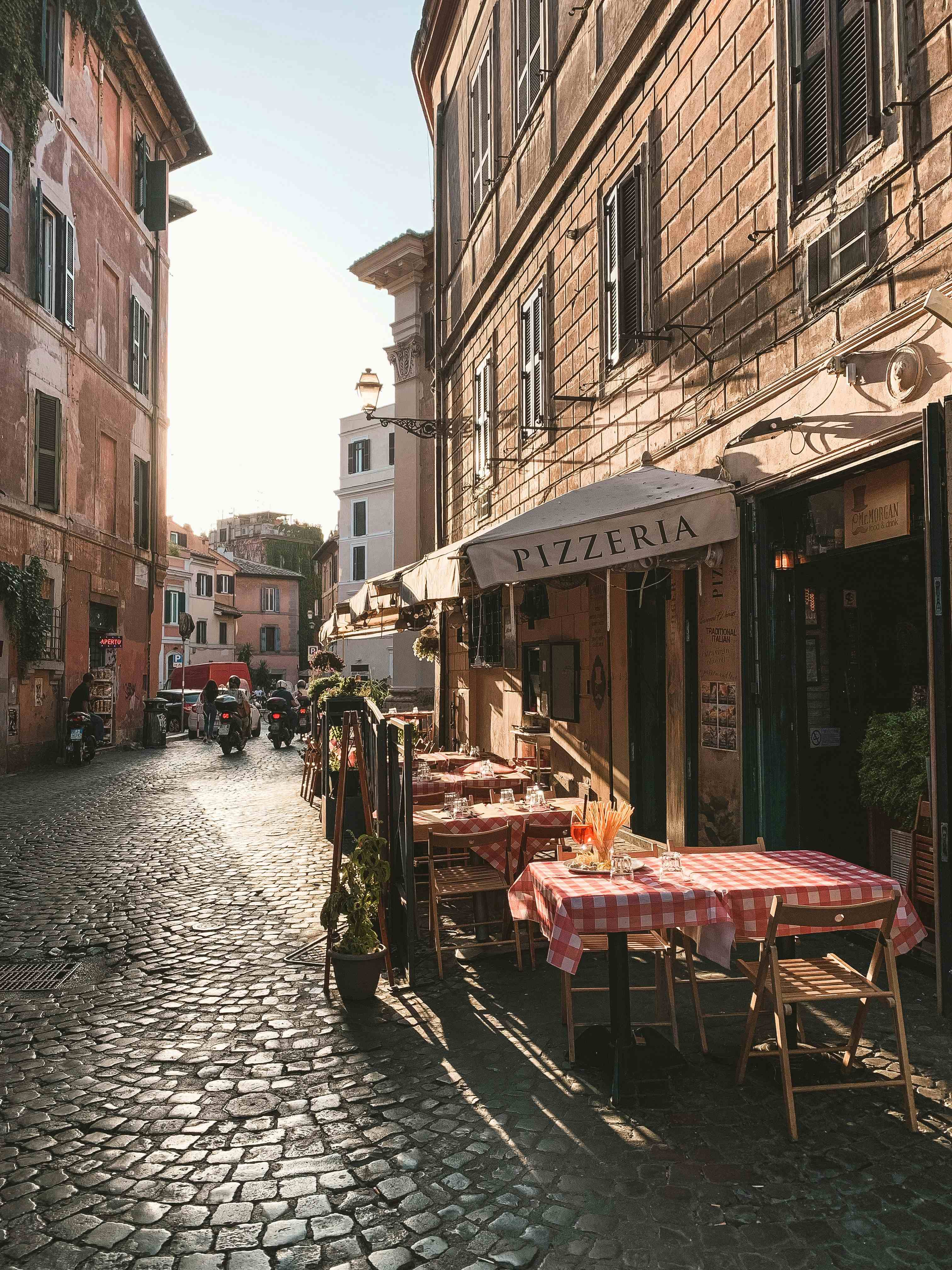
Trastevere derives its name from the river Tevere. The neighborhood once used to be the haunt for the working class populace. Currently, it is one of the best places to find the authentic Roman soul, one that does not come with a steep price tag. You may sit around in the piazza or just explore the eateries in the area as the sun sets on the city.
- Stroll along Via del Moro and walk in and out of its many colorful shops and cafes.
- A walk along the cobblestone streets with crumbling buildings is a must.
- There are many exciting food tours you can partake in to truly relish the local cuisine.
Jewish Ghetto
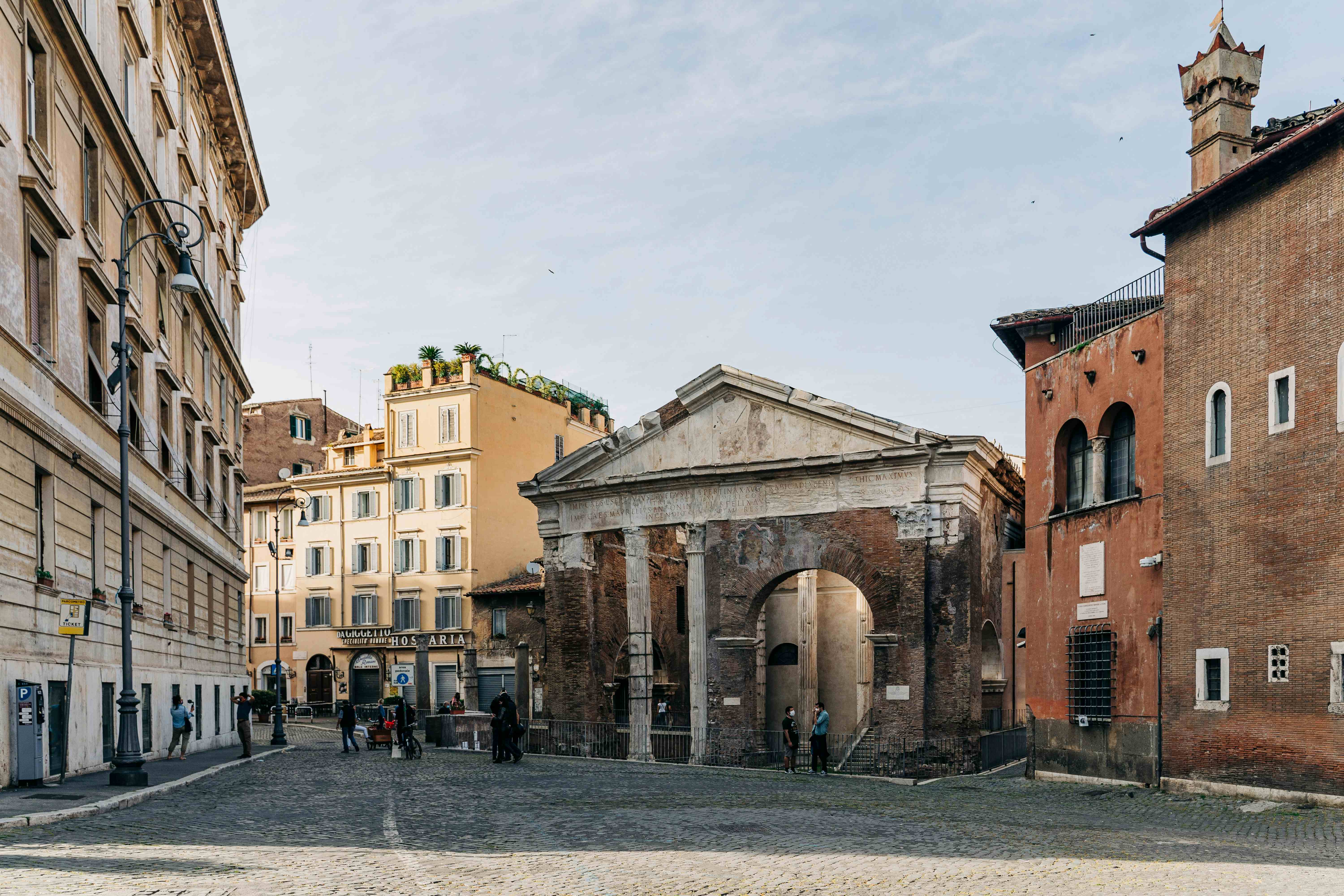
If you want to experience Rome like a local, you should definitely head to the Jewish Ghetto of the city. This part of the city was home to the oldest Jewish community in Europe. You can roam the streets of the neighborhood and absorb centuries of history. You should also head to the museums and temples in the area to get a better outlook of Jewish life in Rome.
- Do not be put off by the title- the Jewish Ghetto is neither dangerous nor boring.
- This area consists of an ancient market place, a theater, a synagogue, an island, plenty of exciting eateries, a picture-perfect fountain (for the 'gram), and lots and lots of gelato!
Piazza Navona
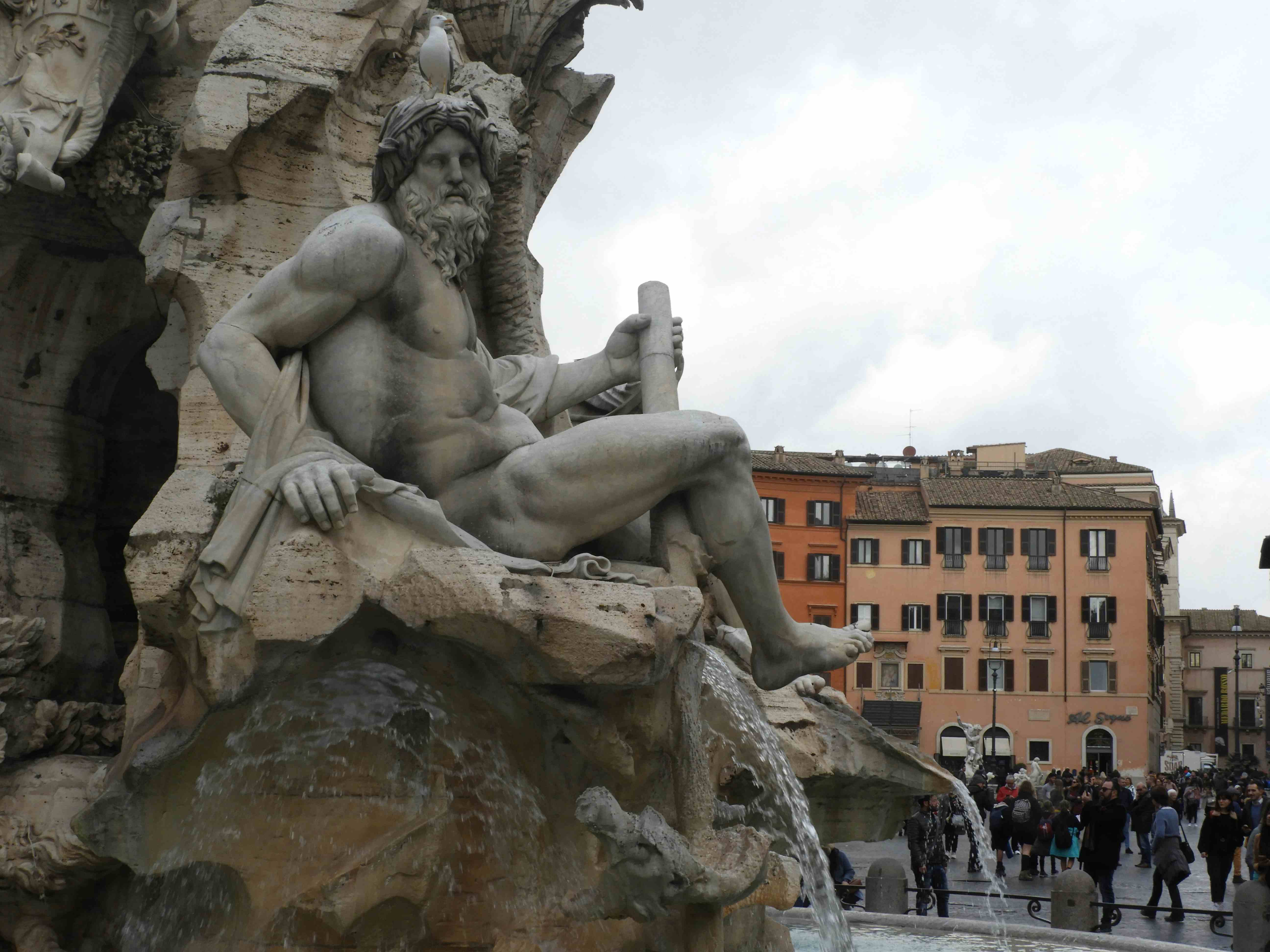
Piazza Navone is one of the largest and most elaborate piazza squares in Rome. The square houses three attractive fountain systems as well. In the background, you will be able to see the Church of Sant'Agnese, which gives Piazza Navone the visual grandeur. A number of musicians and artists ply their trade in Piazza Navone and that should make for an entertaining experience for you.
- Try roasted chestnuts while walking through Piazza Navona- a quintessential activity here!
- The best time to visit would be during spring (mid-March to May) or autumn.
Campo de Fiori

Another prominent piazza in Rome, Campo de Fiori was once a field of flowers. The piazza was paved in the mid-15th century. Currently, the piazza is one of the most flourishing parts of the city, given its popularity among businesses. As you spend your time in the area, you will be able to appreciate structures like Palazzo Orsini that lie in the vicinity.
- Visiting Campo de Fiori by night is another experience altogether. The streets bubble up with life with its restaurants, outdoor cafes, nightclubs, cinemas and theatres.
- If you're looking for a restaurant to eat, try “La Carbonara”.
Gianicolo Hill

The seven hills of Rome are well known. The Gianicolo Hill, however, doesn’t make the cut and is called the eighth hill of Rome. It is the second highest peak in Rome and as such offers a sweeping view of the city ahead. Gianicolo Hill also has the unofficial accreditation of Rome’s lover’s lane, as you are likely to find out during your walk.
KNOW MORE- We recommend you wear your comfiest walking shoes as the whole walk takes about an hour.
- Most of the hill is a downhill walk, so fret not.
Santa Maria del Popolo

Santa Maria del Popolo was erected on a site that was thought to be haunted by the ghost of Roman Emperor Nero. The interiors of the basilica are a departure from the contemporary structures. The ceilings are unremarkable while the walls are elaborately decorated. There are quite a few important works of art by Caravaggio in the basilica.
Sun: Closed
- This church is underrated and a must-visit in Rome. Even though it's not one of the city's bigger churches, it showcases Renaissance architecture beautifully.
- Walk through the church and savor the works of Caravaggio, Raphael, Pinturicchio, and Annibale Carracci inside!
Stadio dei Marmi

Stadio dei Marmi is an open-air sports stadium that was built during the regime of Benito Mussolini. The fascist ideals of the time are leveraged in its faux Greco-Roman statues. The 59 statues represent various sports. A closer inspection of the statues will reveal the attention that was paid to ensure that the figures have features to the liking of the regime.
KNOW MOREDomenica al Museo: Save Museums for Sundays!

By order, many of the museums in Rome allow free entry on the first Sunday of every month. You can take advantage of this day to visit some of the most influential cultural institutions in Rome including the Colosseum and Roman Forum. Although the crowd will be more than usual, setting out early should do the trick.
- Colosseum
- Palatine Hill & Roman Forum
- Castel Sant Angelo
- Borghese Gallery
- Roman Baths of Caracalla
- Capitoline Museum
- Palazzo Venezia
- Mausoleum of Cecilia Metella ...and more!
Tips to Visit Rome on a Budget
- Plan your trip to the Borghese Gardens on the first Sunday of the month so that you can pair it up with free entry to the Borghese Gallery.
- Make sure you visit the crypts of the St. Peter’s Basilica, known as Vatican Grottoes, that houses the tombs of numerous popes and 10th-century royalties. Entry to the Vatican Grottoes is free of cost.
- Grab some food from the carts in the Jewish Quarters of Rome. Not only are the dishes cheap and delicious, but they are also often true to the heritage.
- Visit Teatro Marcello, an open-air theatre at the heart of the Jewish Ghetto of Rome, which once could host as many as 20,000 spectators.
- Take an elevator to the top of Altare Della Patria and take in the panoramic view of the Eternal City. You can see the Piazza Venezia and other popular Roman landmarks.
- Rent a boat at the Borghese lake and discover the reason this place is called the lung of Rome. You can rent a boat for as little as €3.
- Take a nightly tour of Rome and explore various nocturnal aspects of the city. Some tours are focused on exploring the urban legends prevalent in the Eternal City over the years.
Ready for your budget visit to Rome?
Check out the top things to do in Rome & our comprehensive Rome Travel Guide packed with itineraries, tours, culture trips, best hotels, restaurants and a lot more.
Additionally, if you're looking for Rome itineraries to help plan your trip better, read our Rome in 1-day , Rome in 3 days , and Rome in 5 days.
Here are a few more guides that should help you plan your visit.






